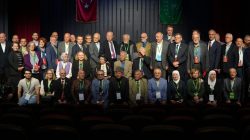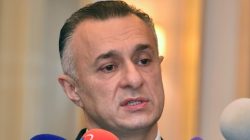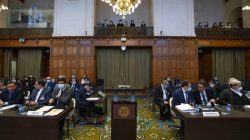
Cherkessk/Agency Caucasus – North Caucasian languages that face extinction contain even official languages in use across the entire region, said Baku Hanceri, professor of philology from Kabardino-Balkaria.
Mr. Hanceri’s statement came amid conference discussions about the type of mother languages that face extinction. He spoke at a conference hosted by the State University of Karachay-Cherkessia for the fourth time in Karachay-Cherkessia’s city of Teberda since 2003.
Mr. Hanceri was one of the well-known linguists who came to attend the conference from Abkhazia, Kabardino-Balkaria, Adygea, Karachay-Cherkessia, Dagestan, Moscow, Stavropoulos, Petigorsk and Tumen. His talk was mainly about the difficulty facing speakers of the following languages, official though they are, when they get involved in some sort of official or commercial transaction: The language of Kabarda (Adygean language) and Balkar in Kabardino-Balkaria, the language of Karachay and Cherkessia in Karachay-Cherkessia (Adygean language), and Adygean language in Adygea. Limited use of those languages in education, and in news media would not be helpful enough to keep a language alive, said Mr. Hanceri:
"Those languages are not in official use in the three following capital cities: Maikop, Cherkessia and Nalchik. Neither social institutions nor shops have the tendency to use the mother language. A conversation between any ordinary speakers of mother tongue is almost identical to a translated conversation. Most scientific researchers interested both in Adygean and Karachay-Balkaria tend to write in Russian. It is quite interesting that we are learning our mother tongue in Russia. In other words, we are 90% ready for globalization. There is not a single group of scientists working on the use of terms. When we want to learn our mother tongue and literature, we have to use the kind of vocabulary that either comes from Russia or other languages. This is the reason why the young people tend to remain indifferent to studies of their own mother tongues and literature, let alone socio-political terms. Encountered with such texts, the students only look at the photos and turn the page over."
Mr. Hanceri’s proposal to establish a committee of study on terminological usages in mother tongues received full appreciation.
Apart from all this, the conference discussion was also about the trouble that comes with globalization. Gabunia Zinayda, Nalchik, and Tirado Rafael, Spain, sent their papers on globalization and mother tongues to the conference, because they could not attend the conference physically.
ADGPS/ÖZ/FT








